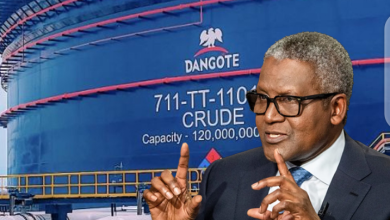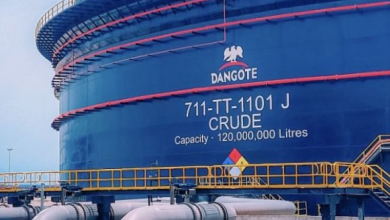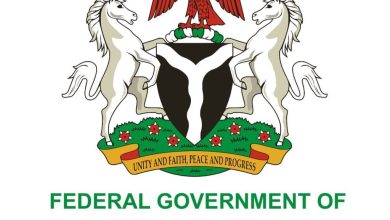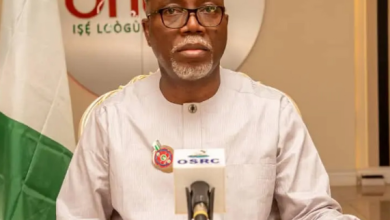Business
Petroleum producers decry infrastructure, technology gap in gas market integration

The African Petroleum Producers’ Organisation (APPO) has identified lack of finance, technological infrastructure and foreign over dependency, as critical challenges facing the African energy markets integration.
Dr Farouk Omar, Secretary-General of APPO, said this on Wednesday in Abuja at the Africa Gas Innovation Summit (AGIS) 2025.
Omar said infrastructure like pipelines was central to the development of the energy markets.
The summit hosted by the Society of Petroleum Engineers (SPE), Nigeria Council in collaboration with the Petroleum Technology Development Fund (PTDF) had its theme as “Building a Resilient Africa Gas Economy through Innovation and Collaboration”.
“When Africa has addressed these critical challenges and is able to fund its projects to a large degree, creates sustainable markets and reduce dependence on technology and expertise, we will be better prepared for global gas market integration.
“Until then, we will be only perpetuating an unequal and exploitative relationship characterised by dependence, not interdependence,” Omar said.
Omar said it decided to look for new ways to address these challenges, especially finance gap, by going into partnership with Afrexim Bank, to fund the Africa Energy Bank (AEB) with headquarters in Abuja.
According to the APPO Secretary-General, legally, the bank is alive now and will be inaugurated soon.
He said they already concluded plan to have an international treaty in force with the signing and ratification of the establishment agreement and charter of the bank by the minimum number of APPO member countries.
He said it had also advertised the position of the president, and very soon other positions shall be advertised.
“We are working on pooling the resources of our member countries, both public and private, to establish regional centres of excellence in the various sectors of the oil and gas industry.
“The current practice, where our countries pursue industry technology acquisition and capacity development in silos, each having oil and gas research and development institutions, as well as training institutions, have not yielded the desired results.
“For general research and training of middle and high-level manpower, they are suitable, but for breakthrough research and innovation, we need to pool our resources together to pursue common objectives,” he said.
He said it had partnered with the Central Africa Business Energy Forum (CABEF), to work on the provision of energy infrastructure, more precisely creating a comprehensive network of pipelines to link the 11 Central African states by gas, products and crude oil.
“A couple of weeks ago, APPO, CABEF and the Central African Economic Community (CEMAC) agreed on the documents to be presented to the next summit of the heads of state of CEMAC to be hosted in Central Africa,” Omar added.
Omar who gave a keynote speech titled “Shaping Africa’s Gas Sector for Global Integration” urged African countries to focus on Africa, as true interdependence can only be among equals or near equals.
He frowned at the notion that it was in the best interest of Nigeria to export energy to get foreign exchange with which to buy foreign goods and services.
“That is why we see nothing wrong with a continent that has the unenviable record of being home to the largest proportion of the world’s population living without access to modern energy, exporting 45 per cent of gas and 75 per cent of crude oil it produces.
“Furthermore, out of a projected capital requirement of 89 billion dollars, only four billion is currently committed to projects being built, while a staggering 85 billion dollars remains tied to proposed projects with uncertain timelines.
“It’s a severe bottleneck and a clear call to action,” he said.
In an address, Dr Amina Danmadami, Chairperson, SPE, Nigeria Council, said the summit was a call to action—a strategic convergence of ideas, expertise and ambition, aimed at unlocking the full potential of Africa’s gas resources.
Danmadami lamented that the Africa’s gas sector is at a defining moment, adding that Nigeria possessed abundant reserves, yet it must overcome legacy challenges of infrastructure gaps, fragmented markets, underinvestment, and policy uncertainties.
She said the AGIS 2025 would showcase how digitalisation, infrastructure modernisation, gas-to-power strategies, clean cooking solutions, and regional integration could position Africa as a global gas powerhouse.
“The SPE will document and transmit key recommendations to policy and industry stakeholders, ensuring that AGIS 2025 drives meaningful and lasting impact,” Danmadami said.



